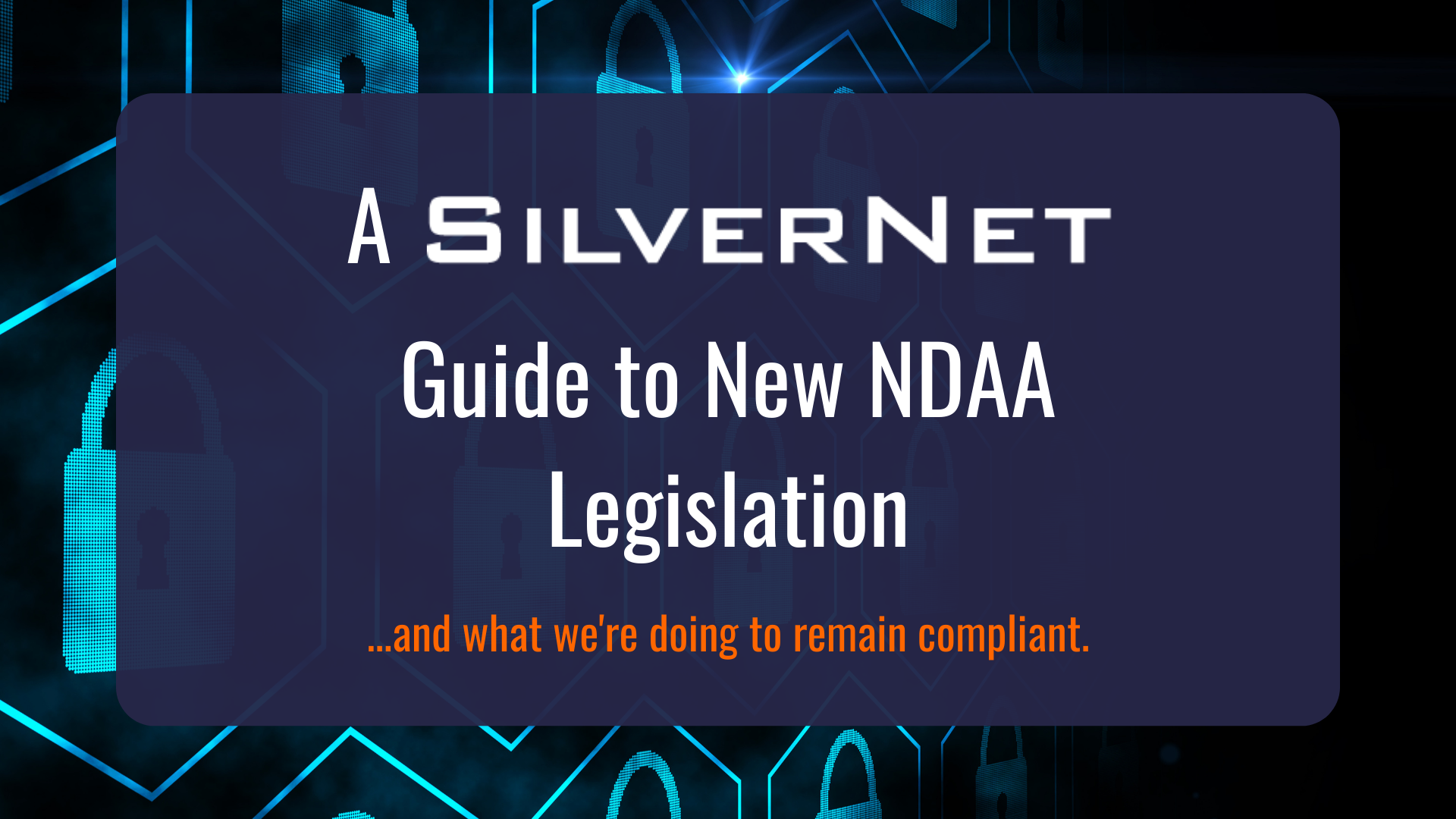Everything you need to know about NDAA, CCTV, and how SilverNet is helping you remain compliant.

You may have recently read about the National Defense Authorisation Act (NDAA). Signed into law recently by President Joe Biden in the USA, this new compliance legislation will have an impact on businesses who work with government agencies and includes a ban on products using components from Chinese manufacturers.
At SilverNet we have received a number of queries regarding NDAA, including how it will impact security cameras and systems, how to ensure your equipment is compliant, and what we are doing to ensure SilverNet products are all above board. Read on to find the answers to these questions, and more information about NDAA. If you have any further queries regarding this topic, please do not hesitate to contact us using the details at the end of the article.
What is NDAA?
The NDAA is a law that guides US defence agencies on their annual budgets and expenditures, reviewed and amended annually. Over the years it has outlined and updated legislation around government procurement, sub-contractors, hate crimes, COVID-19, and most recently security systems and CCTV cameras, among many other issues.
The 2023 legislation included provisions for the use, procurement, or sale of certain brands of surveillance equipment for federal agencies. Federal agencies are prohibited from purchasing equipment from these specified brands, and additionally can’t do business with contractors that use surveillance technology from blacklisted products.
Does the NDAA impact security systems and CCTV cameras?
Yes, the NDAA does have an effect on security systems and CCTV cameras when being supplied to federal and government agencies or their contractors.
The NDAA specifically bans security camera brands originating from countries such as China and Russia, including Dahua, Hikvision, and Huawei. The legislation also bans any brands that may function as part of, under, or as affiliations of these companies.
All federal agencies in the United States are affected by this new legislature, including the FBI, National Park services, and the military to name a few. Federal agencies are prohibited by the NDAA to work with contractors who use or offer unlawful security equipment, including new, renewed and existing contracts. It also applies regardless of whether the contractors utilize the cameras for government contact work. While the act focuses on prime contractors, subcontractors also have to comply.
How do you ensure your security system is NDAA compliant and my data is secure?
If you need to find out if your systems are in compliance with these new rules you could undergo a comprehensive security audit with an experienced, established and trusted organisation, able to identify equipment with banned or approved components.
You could also find out your security cameras original equipment manufacturer (OEM) and verify they are on the NDAA compliant list, although this can be difficult due to many brands using products and components from other manufacturers.
But a sure-fire way to ensure your security equipment truly is secure is to stick with British manufactured SilverNet equipment – read on to find out why.
What is SilverNet doing to ensure compliancy?
You can rest assured that SilverNet products will not be affected by the NDAA legislation, and your data and equipment is as secure as it always has been.
SilverNet products such as Switches and Wireless links are not under the same restrictions as some Chinese, or now Russian, manufactured equipment. A blacklisted or whitelisted camera will still operate over SilverNet equipment as there is no data prejudice. There is no mechanism within our equipment to send data anywhere other than what has been configured nor is there any snooping mechanism built in to send data where it shouldn’t go.
To avoid potential security breaches we recommend a few things at a minimum:
- Make sure your security system is not connected to the internet needlessly
- Correctly configure Vlans for management and traffic
- Always change/ set up non default passwords
For more information about avoiding security breaches and security best practice, feel free to get in touch with our experts who can help make sure you’re equipment is as secure as it can be.
)
)
)
)
)
)
)
)
)
)